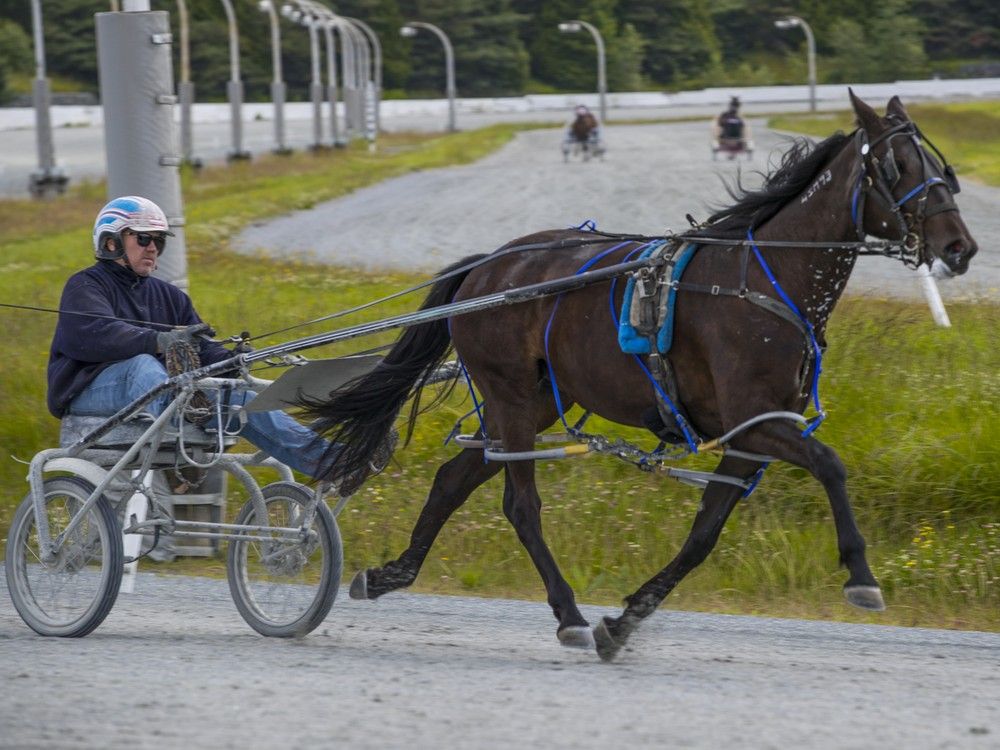
Harness Racing B.C. and a member who owns nine racehorses have filed a lawsuit to try to stop a scheduled closure of the Fraser Downs horse racetrack in Surrey that operators say is necessary to control a rat infestation.
The association has requested a B.C. Supreme Court judge hear its case to stop the shutdown of the racetrack for 60 to 90 days beginning May 30, and a hearing has been scheduled for early next week, said association president Kelly MacMillian, who breeds standardbreds in Kelowna.
The harness racing season finished at the end of April and is to resume again in early September.
But MacMillan said Fraser Downs, B.C.’s only harness racing track, is needed for six days a week during June, July and August to train the young horses, if they are to be ready for the fall.
“For breeders and owners, it (the shutdown) is total decimation,” he said.
He said he when he sells his colts, people buy them for about $40,000 each and then train them over eight months at a cost of $10,000 to $15,000, in the hopes of recouping their losses in the stake races in the fall.
Without the possibility of those big purses, the season is a “total wipeout,” he said.
And the knock-on effect of the losses will be felt in future because there will be no one to buy the yearlings next year, he said.
After the challenges of the COVID years, “the closure of the racetrack’s stabling barns and the training facilities is as demoralizing an event as I could imagine for our industry,” he said in an affidavit filed with the lawsuit.
The lawsuit’s named plaintiff, Margaret White, the owner and trainer of nine horses, seven of which she stables at Fraser Downs, said in her affidavit there is only one other small private stable in B.C. equipped for the required training and it doesn’t have room for all the horses that would be displaced.
She has found a field for her horses, but said the horses couldn’t be trained there and could be susceptible to disease outside of the stables, it said.
She also said the number of workers she employs, including groomers, vets, people to exercise and to ride her horses, and stable cleaners would be without work during the shutdown.
MacMillan in his affidavit, there are 75 to 100 workers employed at the track leading up to the fall season, and he said those workers include those who live with mental disabilities and enjoy meaningful work in the industry.
She and MacMillan agreed the rat infestation needs to be controlled, but they said they have consulted exterminators who say it can be done without requiring the stables to be vacated for up to three months.
MacMillan said there’s no question the rats are a problem and he has seen 30 rats at a feeding trough while the horse stands in the corner. But he said he has managed rats at his own farm over the years and said the track operators should have acted sooner to control the infestation.
Neither of the named defendants, Orangeville Raceway and the Great Canadian Gaming Corp., have filed a response to the lawsuit.
Chuck Keeling, a vice-president of Great Canadian Entertainment, said in an email that he wouldn’t comment about the lawsuit, which he said was commenced “to seek to impede our pest control efforts.”
“We intend to vigorously defend the litigation so that we can ensure the health and safety of HRBC (Harness Racing B.C.) members, our team members and guests.”